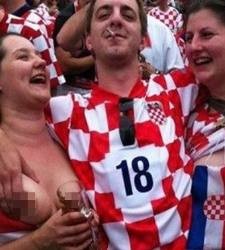Sports in Croatia
Which sports do Croatian people enjoy?
Football, tennis and skiing are very popular and Croatia, as a lover of sport, has contributed an uncountable number of first category players to these areas.
Basketball
It’s the second most popular sport in Croatia after football, and people follow it religiously. The teams from Split, Zadar and Cibona from Zagreb are known all over Europe, although they still haven’t managed to repeat the event, in the 1980 division, when players like Drazen Petrovié, Dino Rada and Toni Kukoé made Cibona the European champion.
Football
Football is by far the most popular sports show in the country. It’s often an escape mechanism from national patriotism and, now and again, is used as a way of expressing political opposition. When Franjo Tudman came to power, he thought that the name of Zagreb’s team, Dinamo, was too communist, so he changed it to that of Croatia. This decision unleashed waves outraged young football fans who took advantage of the controversy to demonstrate their opposition to the regime. Despite the following government allowing the original name, it’s still possible to see graffiti on the streets of Zagreb that say ‘Dimano volimte’ (Dimano I love you). Dinamo’s main rival is Hajduk from Split, whose name comes from those who formerly resisted the Roman power. The fans of Hajduk and Dinamo are huge rivals; and fights often break out when the two teams play against each other. The national team, coached by the Croatian Slaven Bilic, ex West-Ham player, gained good results in the 2008 European Championship, reaching the quarter finals and defeating strong teams like Germany, although they finally lost to Turkey. They also performed well in the 1998 World Cup in France, where they came third, after some sensational victories against important teams like Germany or Holland. Moreover Davor Suker, with six finals, obtained the prestigious “golden boot”, awarded to the best goalkeeper of the championship. Throughout his career Suker scored 46 goals in international matches, 45 of them for Croatia; of all the goalkeepers that Croatia has ever had, he is the best. In March 2004, the genius football player Pelé said that Suker was one of the 125 best footballers alive.
Tennis
Andy Roddick once said: “I don’t know what Croatia has got but all of its players are more than two metres tall”. Although this is an exaggeration, Croatia has produced some of the biggest players, in all senses. When Goran Ivanisevic, 1. 93m tall, won Wimbledon in 2001, it sparked celebrations across the whole country, especially in Split, his hometown. Elcarismàticojugador, known for his volley, was very well-liked for his likeable personality and his nonsense on the pitch, and for a large part of the 90’s he remained amongst the players on the list of 10 best players of the moment. A series of injuries forced his retirement in 2004, but Croatia remained in the first division for tennis by winning the Davis Cup in 2005, mostly thanks to Ivan Ljubióié and Mario Ancic. Born in Bosnia and Herzegovina, Ljubicic fled to Croatia with the outbreak of the war and shaped his most potent service in Rijeka. Mario Ancic, from Split itself, was nicknamed ‘Baby Goran’ by Ivanisevic himself. Iva Majoli, born in Zagreb, stands out in female tennis for winning the Roland Garros tournament in 1997 with an aggressive game from the back line, although she didn’t manage to achieve more victories in the Grand Slam. In Croatia, tennis is more than a show sport. The coastal areas are well-equipped with clay pitches and they are always full. The country’s most important tournament is the Umag Open, which is celebrated in July in Istria.
Skiing
If Croatia had a national goddess, it would be Janica Kostelic. Born in Zagreb at the heart of a family of winter sports enthusiasts, Kostelic is the skier who has had the most success in Croatia. After winning the Ski World Cup in 2001, she added three gold medals and one silver to her list of victories in the 2002 Winter Olympics, the first to be won by a Croatian in this competition. At 20 years old she became the first skier to win three medals in the same Olympics. As of 2002 Kostelic was impaired by a knee injury and a thyroid removal, but this didn’t stop her from winning a gold medal in the women’s combined descent trials and a silver one in the Super-G in the 2006 Winter Olympic Games played in Turin. Her brother Ivan Kostelic took the title of World Cup title for the 2002 men’s slalom and won a silver medal in the men’s combined descent trials in the 2006 games in Turin; maybe it’s in the genes.

Photo gallery
Content available in other languages
- Español: Deportes en Croacia
Want to have your own Erasmus blog?
If you are experiencing living abroad, you're an avid traveller or want to promote the city where you live... create your own blog and share your adventures!
I want to create my Erasmus blog! →




Comments (0 comments)